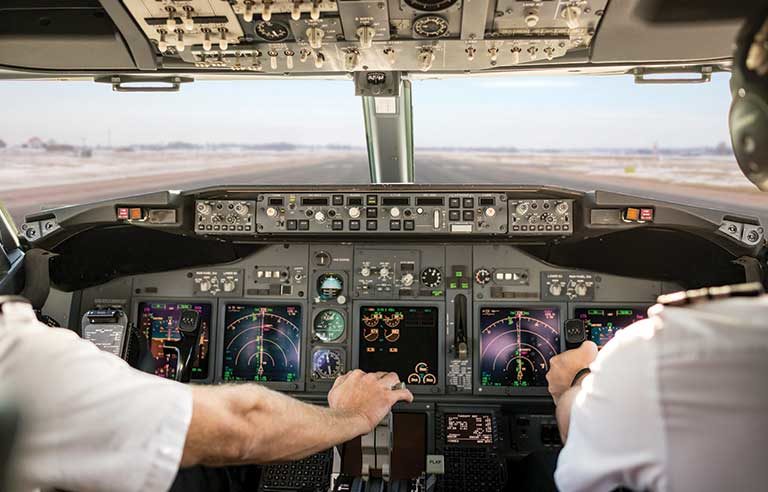Higher carbon dioxide levels in cockpit affect airline pilot performance: study

Boston — Higher levels of carbon dioxide in airplane cockpits may diminish commercial pilots’ ability to perform maneuvers, recent research from the Harvard T.H. Chan School of Public Health indicates.
For the study, 30 commercial airline pilots completed three, three-hour flight sessions in a simulator. They were paired up to perform several pre-established maneuvers of varying difficulty, with CO2 concentrations adjusted to 700, 1,500 and 2,500 parts per million, respectively, during each session.
Findings showed that pilots were 69 percent more likely to correctly complete the maneuvers when CO2 levels were at 700 ppm than when CO2 levels were at 2,500 ppm. At 1,500 ppm, pilots were 52 percent more likely to correctly complete the maneuvers than at 2,500 ppm. In addition, the negative effects of CO2 on flight performance grew more conspicuous as pilots spent more time in the simulator.
Carbon dioxide concentrations in cockpits typically average less than 1,000 ppm, according to previous research cited in the study.
“Flying is safe, no question,” Joseph Allen, lead researcher and Harvard assistant professor of exposure assessment science, said in an Aug. 8 press release. “The entire flight experience is designed around a culture of ‘safety first.’ Optimizing air quality on the flight deck must continue to be a part of that safety equation.”
The release notes National Research Council findings that existing standards for cockpit ventilation rates “may be inadequate.” The researchers say more information is needed on how air quality in the cockpit can boost pilot performance.
The study was published online Aug. 8 in the Journal of Exposure Science & Environmental Epidemiology.
Post a comment to this article
Safety+Health welcomes comments that promote respectful dialogue. Please stay on topic. Comments that contain personal attacks, profanity or abusive language – or those aggressively promoting products or services – will be removed. We reserve the right to determine which comments violate our comment policy. (Anonymous comments are welcome; merely skip the “name” field in the comment box. An email address is required but will not be included with your comment.)

